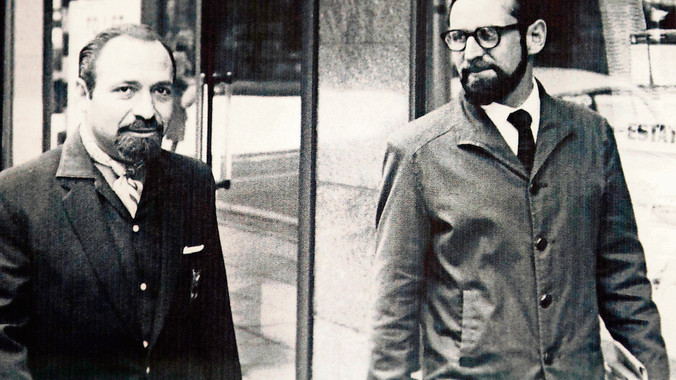His dissident views made him a renegade communist, but a new biography confirms Harold Wolpe as an influential radical voice, writes Shaun de Waal.
RACE, CLASS AND POWER: HAROLD WOLPE AND THE RADICAL CRITIQUE OF APARTHEID by Steven Friedman (UKZN Press)
Harold Wolpe was most famous for escaping from police custody after his arrest, in 1963, as one of the Umkhonto weSizwe conspirators based at Liliesleaf farm.
Had he not escaped, he would have ended up on the stand with Nelson Mandela in the Rivonia trial and would probably have been jailed thereafter. Instead, from his exile in Britain until he returned to South Africa in the early 1990s, Wolpe was a major political theorist involved in burning debates about apartheid, race and class before apartheid was finally undone.
As Steven Friedman’s title indicates and as the great “race/class debate” of the time shows, this was a nexus that attracted much attention from historical and political analysts. It is still, in many ways, a Gordian knot at the heart of South African political thought.
Wolpe wanted to clarify this issue and, as a Marxist, to show that class had a foundational role in the development and sustenance of apartheid. As a loyal member of the South African Communist Party (SACP), however, he had to try to do so within the ideological limits set by the party, which was, ironically, stuck in a position that gave primacy to race – not very far from that of the liberals.
More ironically still, despite the efforts of Wolpe and other radicals, the SACP paid no attention to these attempts to make its analysis more sophisticated and, indeed, more fully Marxist. It was concerned only with policing any deviations from the existing party line. Wolpe was suspected of going too far, but – perhaps because of his friendship with Joe Slovo – was not expelled from the party; academics whose work was close to his, such as Martin Legassick, were.
This is enriching, but the book’s core strength remains in Friedman’s remarkable ability to work through these old, continuing and often confusing debates with the lucidity he does. He expands on them as they have developed in their particular political situations or petri dishes, and explains why much of what Wolpe and his like were grappling with theoretically is still on the real political and socioeconomic agenda.
Wolpe was a lawyer before he had to flee the country, and it was said that some of his legal training carried over into his political-historical writing – to its benefit. Friedman has plenty of that sense-making quality.
For full review by Shaun de Waal see Mail & Guardian






